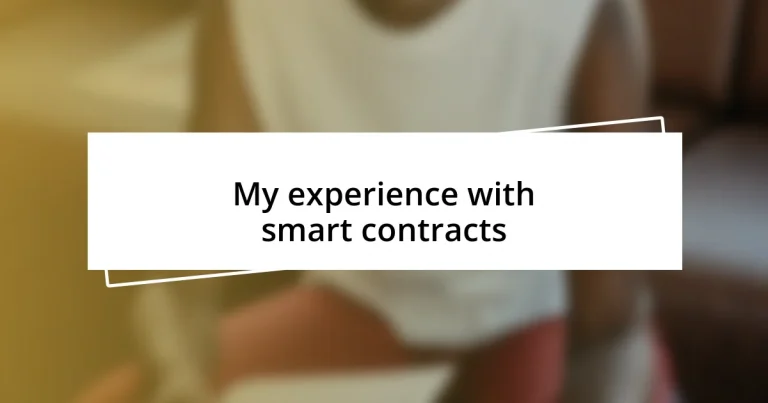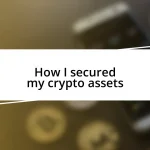Key takeaways:
- Smart contracts automate and secure transactions on blockchain, enhancing transparency and reducing fraud risks.
- They offer significant benefits including speed, cost-effectiveness, security, and accuracy, transforming traditional contract execution processes.
- Future applications could revolutionize industries like healthcare and supply chain management, fostering trust and accountability in business transactions.
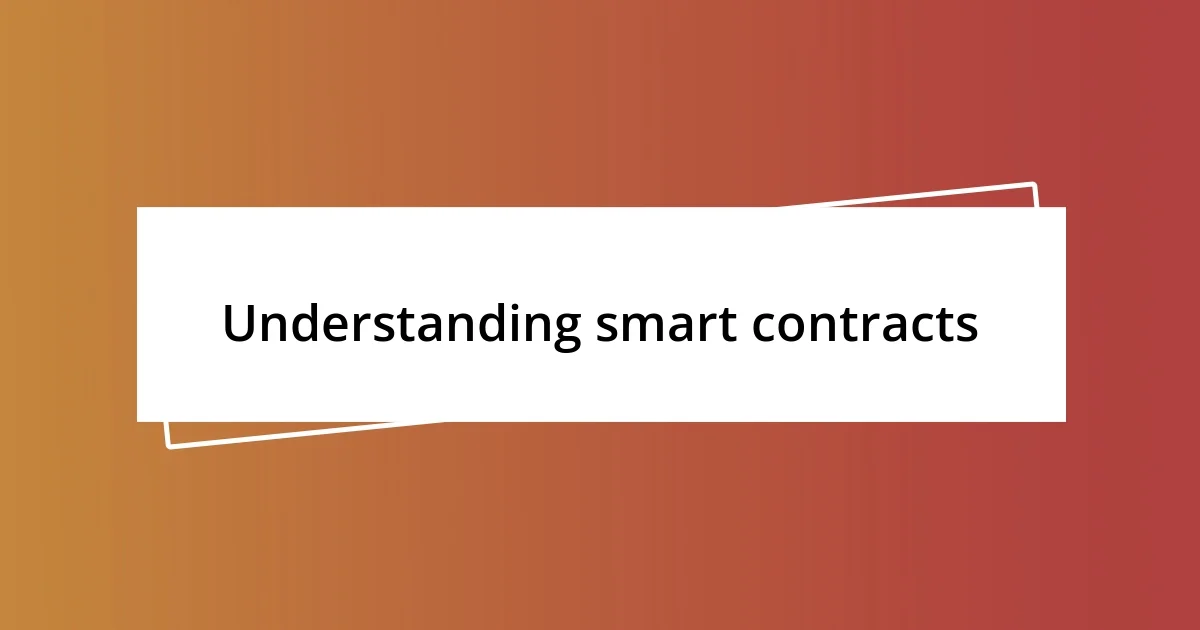
Understanding smart contracts
Smart contracts are fascinating tools that operate on blockchain technology, enabling automated transactions without the need for intermediaries. I remember the first time I encountered one; it felt like stepping into a futuristic world where trust is built into the code. Have you ever thought about how much time we could save if contracts executed automatically when conditions are met?
What I find particularly intriguing is how smart contracts can enhance transparency and reduce the risk of fraud. When I worked on a project involving supply chain management, seeing a smart contract in action was eye-opening. Each step of the process was recorded on the blockchain, and I felt a sense of reassurance knowing that neither party could manipulate the data. Isn’t it refreshing to think our agreements could be this secure?
However, my journey with smart contracts also led me to realize they’re not without their challenges. I often questioned whether the technology could handle the subtleties of human interactions, like negotiating terms or resolving disputes. Reflecting on my experiences, it became clear that while smart contracts are powerful, they still require careful consideration and understanding to truly maximize their potential.
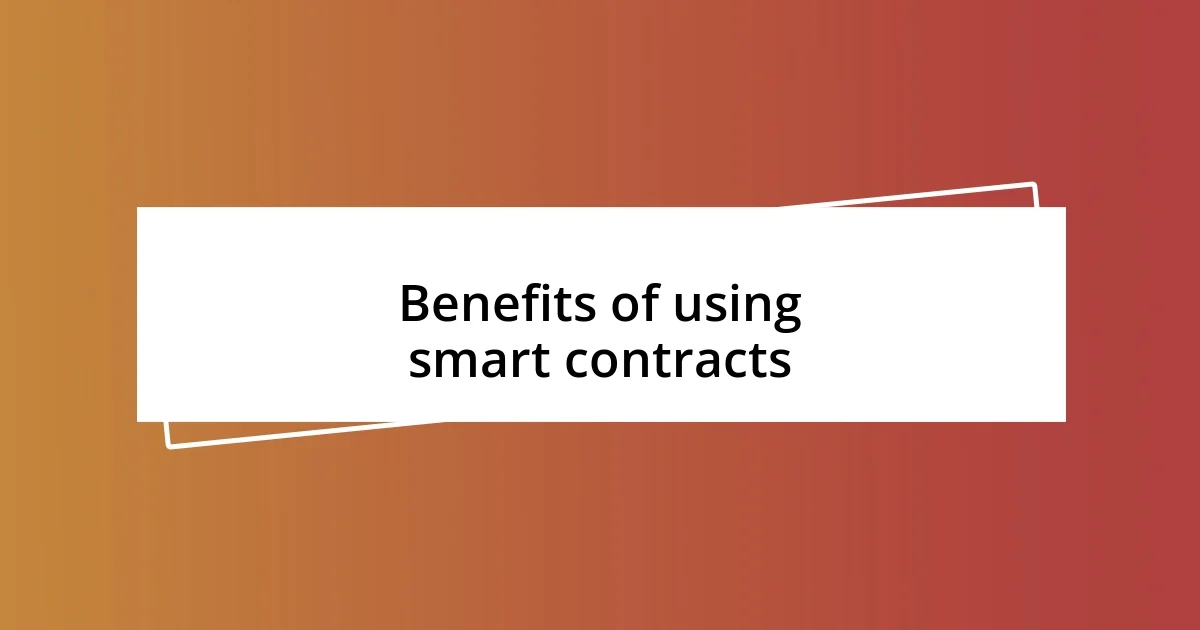
Benefits of using smart contracts
One of the biggest advantages of using smart contracts is their ability to significantly reduce the time and costs associated with traditional contract execution. I recall a project where we utilized smart contracts for freelance work payments. Instead of waiting for clients to make manual transfers, the funds were released automatically when milestones were reached. It was a game-changer—no more chasing invoices or worrying about late payments.
Here are some key benefits I’ve observed:
- Speed: Smart contracts execute instantly when conditions are met, streamlining the process.
- Cost-effectiveness: Reduces the need for intermediaries, lowering transaction fees.
- Security: Transactions are encrypted and recorded on a blockchain, making them tamper-proof.
- Trust: Parties can rely on the code rather than needing to trust each other blindly.
- Accuracy: Automating contract execution minimizes human errors.
Using smart contracts has reshaped how I view agreements. They create a world where parties can work together without the usual stress of miscommunication. During a real estate transaction, a smart contract escalated my confidence in the closing process—everything was handled seamlessly, and that peace of mind felt invaluable. When it comes to efficiency and reliability, smart contracts truly shine.
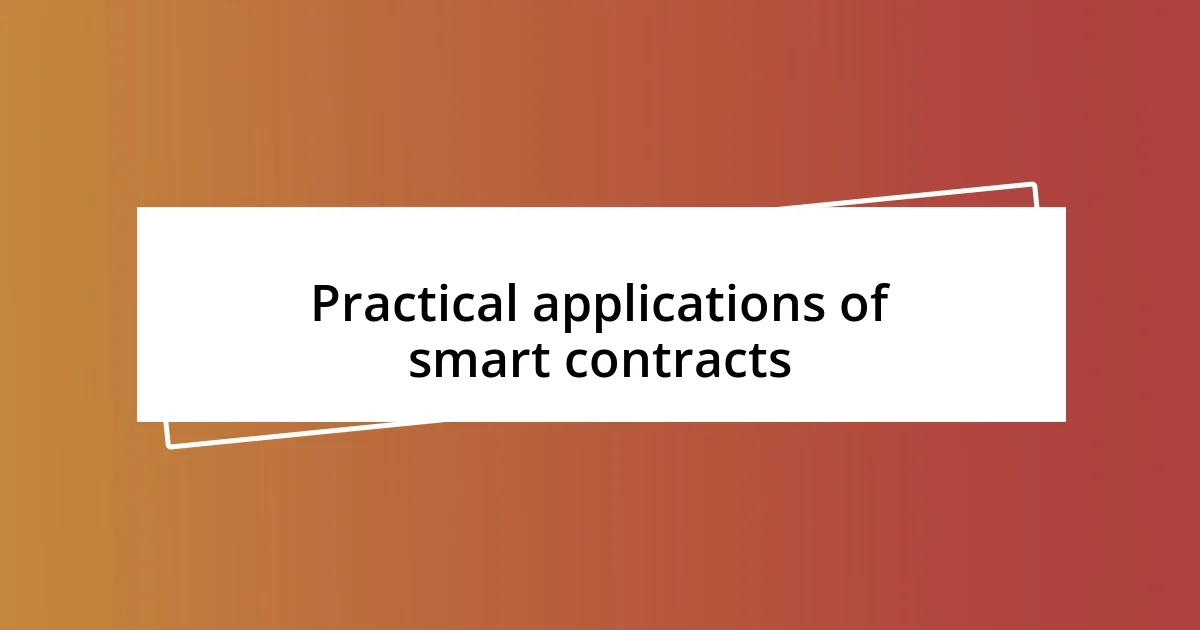
Practical applications of smart contracts
Practical applications of smart contracts are diverse and continue to expand as the technology evolves. For instance, I recently witnessed a pilot project using smart contracts in the healthcare sector. They were used to manage patient consent forms, ensuring security and automation of processes. It was a relief to see how patients could feel confident that their sensitive information would be handled only with their permission, marked by an unchangeable digital record. Who wouldn’t want such privacy and transparency in healthcare transactions?
In the world of real estate, I found myself amazed by how smart contracts can streamline property transfers. Last year, during a house purchase, title transfers were executed through a smart contract, which automatically released funds to the seller upon verification of ownership. This not only sped up the entire process but also eliminated the common hiccups and delays caused by paperwork. Don’t you think it’s exciting to see technology stepping in to ease the stress of buying and selling properties?
Moreover, I have learned that smart contracts are making waves in the realm of digital identity verification. At a tech conference, I remember a demonstration showcasing how smart contracts securely verified identities without sharing personal data. It struck me how empowering this could be for individuals seeking to maintain privacy in an increasingly digital world. This practical application could definitely change the way we view personal information security.
| Application | Description |
|---|---|
| Healthcare | Managing patient consent securely and automatically, ensuring privacy. |
| Real Estate | Streamlining property transfers and minimizing paperwork-related delays. |
| Digital Identity | Securely verifying identities without revealing personal data. |
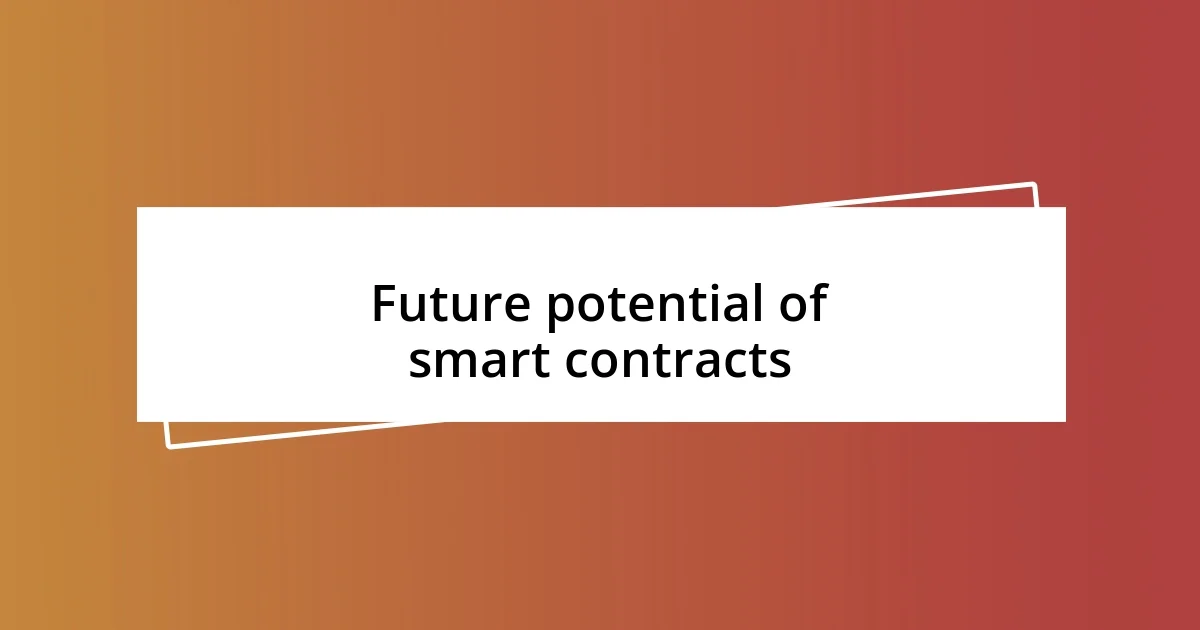
Future potential of smart contracts
I see enormous potential in smart contracts as we move forward into a tech-driven future. One of the most exciting prospects lies in their ability to integrate with emerging technologies like the Internet of Things (IoT). Imagine a world where your fridge can automatically order groceries when supplies run low, and a smart contract ensures payment upon delivery—all without human intervention! That fusion of convenience and automation truly captures my imagination.
Moreover, as I reflect on the potential of smart contracts in areas like supply chain management, I can’t help but feel optimistic. The transparency they bring could revolutionize how businesses operate. For example, consider a scenario where consumers can track the ethical sourcing of their products—from farm to table—all certified through smart contracts. It makes me think: wouldn’t it be incredible to have that level of assurance in the products we consume daily?
Ultimately, the future could see a significant shift in how we perceive trust in business transactions. Smart contracts can instill confidence by ensuring accountability among all parties involved. I’ve often wondered how different my own experiences would have been if such technology were prevalent earlier in my dealings. The prospect of eliminating fraud and fostering genuine trust through secure, automated agreements feels not only promising but necessary for the evolution of fair trade.
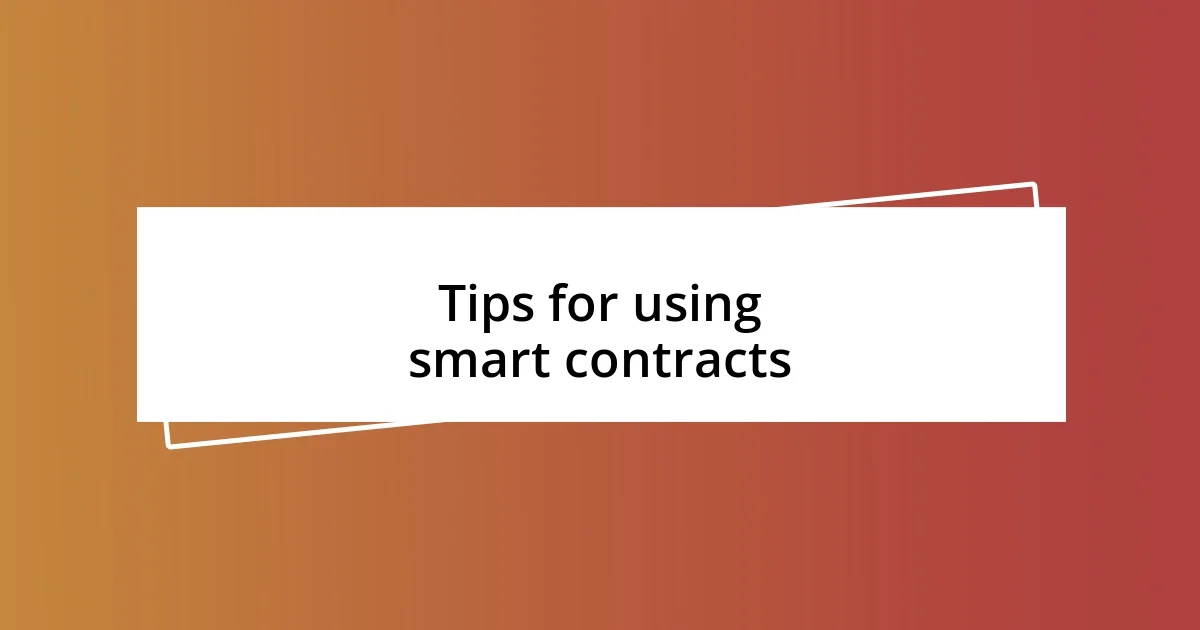
Tips for using smart contracts
When using smart contracts, clarity is paramount. I once faced a situation where a poorly defined contract led to misunderstandings in a business partnership. I learned the hard way that ensuring all terms are explicitly stated not only protects all parties involved but also builds a foundation of trust. Have you ever tried to navigate a vague agreement? It can be a headache!
Another tip is to conduct thorough testing before deploying a smart contract. I recall an instance where a friend’s company rushed to use a smart contract without proper auditing, and it backfired spectacularly. Their funds were stuck in a loop due to a coding error! It reinforced my belief: always test and double-check your code to safeguard your investments and operations. Missing a simple bug can be costly, and nobody wants that kind of surprise!
Lastly, keep abreast of legal frameworks surrounding smart contracts in your jurisdiction. I remember grappling with the legal nuances when I started using these contracts for freelance gigs. Understanding the legal implications can help avoid potential pitfalls down the line. Have you ever felt lost in the legalese? I certainly have, and it’s a relief when you know what protections are in place for you.












